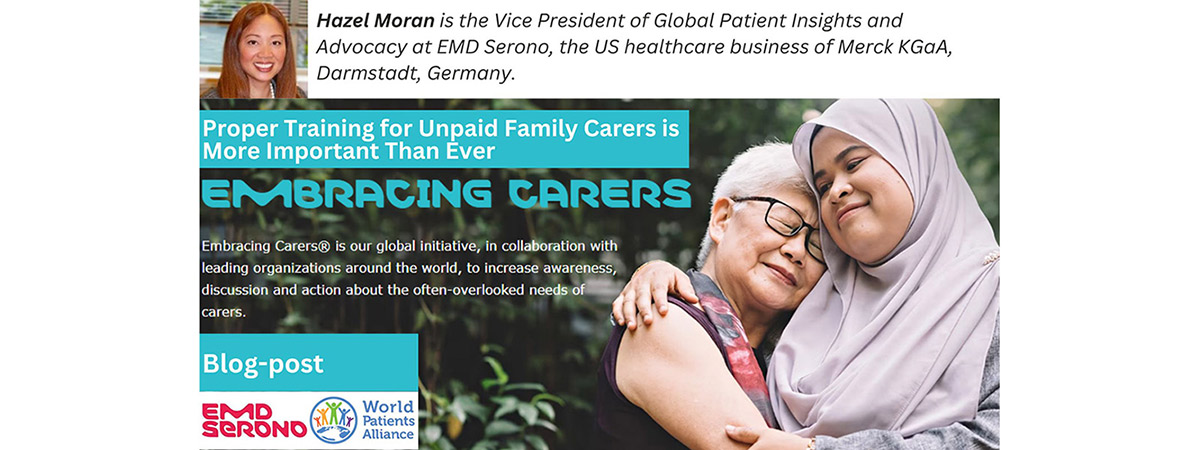Imagine hearing that a loved one — your mother, father, husband, wife, or someone else whom you care immensely about — has been diagnosed with a debilitating disease such as cancer or multiple sclerosis. In that moment, it’s possible both their life and yours could change in ways you likely never envisioned. Soon they may need help performing even the most basic tasks, such as feeding and bathing; they may struggle with depression and fear. And they won’t be able to get through it without you.
Yet despite the enormity of the situation, you’ve received no preparation for what you’re expected to do or any training on the best and safest way to do it. Your loved one’s well-being is suddenly in your hands, but you feel completely lost.
With so much at stake, you might believe that properly training and supporting carers would be a top priority, both at work and within the healthcare system. Unfortunately, you would be mistaken.
That is the overwhelming reality faced by the millions across the world who find themselves thrust into the unexpected role of serving as unpaid family carers for a loved one. According to a carer survey conducted by the Embracing Carers® initiative, family carers spend an average of 28 and 26.8 hours in the U.S. and Europe, respectively, on caregiving duties each week; thus, it’s no surprise that 75 percent of those say they feel burned out by their caregiving responsibilities.
Currently, very few unpaid family carers receive formal training for even the simplest aspects of their duties. Mastering complicated caregiving responsibilities like inserting feeding tubes or knowing how to adapt when a loved one loses the ability to speak isn’t something that millions of people should rely on learning from amateur videos and tutorials shared by equally exhausted carers.
According to the Carer Index, 68% of carers want additional guidance and training to support their clinical and non-clinical caregiving responsibilities. This includes everything from managing medications and doctor’s appointments to the proper use of medical equipment and knowing how to maintain a safe and clean environment that minimizes their loved one’s risk of infection and injury. Without this training, unpaid family carers risk providing ineffective care while also suffering from stress and uncertainty about what they should and could be doing better.
Thankfully, several organizations are beginning to acknowledge the vital need to provide trusted, easy-to-understand, and easily-accessed training for family carers. For example, Merck KGaA, Darmstadt, Germany and the United Nations-Guided Global Initiative on Ageing (GIA) have recently released five free online training modules in Spanish and English which offer carers vital instruction on crucially important topics such as feeding and nutrition, creating and maintaining a safe at-home environment, and identifying communication issues that can lead to inefficient treatment.
According to the WHO, 1 in 6 people in the world will be aged 60 years or over by 2030, and it’s likely that many of those people will either be family carers or need one themselves. Because of this anticipated growing need, it is more important than ever for governments, businesses, and communities to rise to the occasion. Organizations and employers who intentionally strengthen their support for carers are still unfortunately so rare that their actions are newsworthy, but their proactive investment in carers’ well-being is setting an example that I hope others will learn from and expand upon.
Ensuring that family carers receive the crucial training and support they need to confidently and competently perform their tasks will enable their loved ones to age with grace, face a serious illness with poise, and reach the end of their years with dignity. Anything less would be a failure not just of our collective societal ability to imagine a more supportive and caring future, but also of our commitment to meeting our most basic human responsibilities to one another.
— Hazel Moran is the Vice President of Global Patient Insights and Advocacy at EMD Serono, the US healthcare business of Merck KGaA, Darmstadt, Germany.


